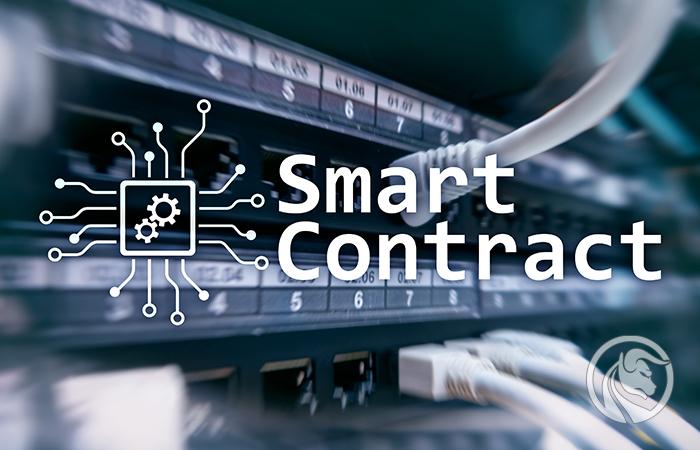Smart contracts - what is it, how does it work and what is it for?
Technology blockchain became known mainly thanks to cryptocurrencies. But it allows for much more than "just" settling in with digital money. It is even a chance for a completely new Internet, based on smart contracts that can also be used on financial markets. Are there smart contracts and how do they work?
Smart contracts are something like an automatic contract. That is, a computer code that allows an automatic operation to be carried out when certain conditions are met. They are based on blockchain technology, which was successfully used for the first time in Bitcoinieand became popular with the start of the network Ethereum.
What are smart contracts?
A smart contract is any code written by programmers that has the conditions for the implementation of tasks in it. Moreover, the task does not have to be completed immediately, as soon as both parties meet the indicated guidelines. After all, contracts are "smart", so they can do much more: for example, negotiate the terms of the contract, bargain or check whether the conditions are actually met.
Security of smart contracts
This is the basis of their popularity. Smart contracts - in terms of security - work in the same way as blockchain. They are based on cryptography and hashing functions. Everything is completed by decentralization and a distributed data register, which in practice makes it impossible to break the code. Suffice it to say that it would require the computing power of all computers that are currently in the world, and it is not certain that it would succeed.
How to build smart contracts
The basis for creating smart contracts is still a traditional contract, be it written or concluded orally, which must be translated into a programming language. They are most often written in Java programs, Solidity and C ++. It happens, however, that they are also created in less popular programming languages, because a given network supports e.g. only one.
The smart contract itself has conditions to be met, but if it is not met, it can also define penalties for the party that failed to meet the contract. Everything is implemented automatically after all data is provided. Smart contracts operate on the long-known IT principle "IF", ie "if" something happens, something else will happen. This may be, for example, an automatic change of the loan interest rate to a lower one, if payments are made regularly, or an increase in the fee if they are not paid on time.
How smart contracts work?
When we have the code that meets the indicated conditions ready, it goes to the network, i.e. nodes created by computers connected to it. It is the nodes that check (automatically, of course) whether and what conditions have been fulfilled and at the same time independently check whether there has been an invalid code interference. If all the results match, the smart contract is fulfilled. Therefore, you do not need any intermediary for this, such as a bank advisor, notary or supervisor from the authorities. If both parties meet the conditions, the smart contract is launched - faster and cheaper than traditional contracts. You don't need a lot of lawyers and consultants.
Contract advantages
1. Security
The code will not make a mistake, will not miss formalities, will not be tired. It will also not be susceptible to the influence and manipulation of unauthorized persons. It will only execute trades that meet all pre-programmed conditions, so you can be sure it's a safe and fraud-free solution.
2. Lack of trust
Contrary to appearances, it is an advantage. You don't have to trust the other party to the transaction. And so it must meet strict conditions. If he does not complete them, we will not lose anything, because the smart contract will not be realized.
3. Speed
The smart contract will be implemented as soon as the conditions are met. The contract does not have to be read by the lawyer or the manager. It is written in advance and simply implemented. You don't need any intermediaries and supervisors.
4. Low cost
It is precisely due to the provided security and the lack of the need for multi-stage authorization that a smart contract is very cheap to use.
5. Openness and transparency
Virtually all smart contracts have open-source code, so anyone can check their rules. Thanks to this, they can be improved on an ongoing basis, as well as monitor their correctness.
Disadvantages of smart contracts
1. Immutability
It can be an advantage but also a disadvantage if the developer made a coding mistake. The most famous example is the acquisition of Ether cryptocurrency units worth around $ 50 million after a vulnerability was detected in the Ethereum code. Despite finding a bug, the smart contract could not be changed quickly and hackers benefited from it.
2. Legal solutions
This is a new solution and there are no procedures developed - especially in Poland - in the event of irregularities in the settlement of smart contracts. There are also not many experts who could help lawyers understand exactly how smart contracts work.






















![Forex Club – Tax 9 – Settle tax on a foreign broker [Download the Application] Forex Club - Tax 9](https://forexclub.pl/wp-content/uploads/2024/02/Forex-Club-Podatek-9-184x120.jpg?v=1709046278)
![Trading View platform – solutions tailored to the needs of traders [Review] trading view review](https://forexclub.pl/wp-content/uploads/2024/03/trading-view-recenzja-184x120.jpg?v=1709558918)
![How to connect your FP Markets account to the Trading View platform [Guide] fp markets trading view](https://forexclub.pl/wp-content/uploads/2024/02/fp-markets-trading-view-184x120.jpg?v=1708677291)
![How to invest in ChatGPT and AI? Stocks and ETFs [Guide] how to invest in chatgpt and artificial intelligence](https://forexclub.pl/wp-content/uploads/2023/02/jak-inwestowac-w-chatgpt-i-sztuczna-inteligencje-184x120.jpg?v=1676364263)


![WeWork – the anatomy of the collapse of a company valued at $47 billion [WeWork, part II] wework bankruptcy story](https://forexclub.pl/wp-content/uploads/2024/04/wework-bankructwo-historia-184x120.jpg?v=1711729561)
![Adam Neumann – the man who screwed up Softbank [WeWork, part AND] adam neumann wework](https://forexclub.pl/wp-content/uploads/2024/04/adam-neumann-wework-184x120.jpg?v=1711728724)





![How to transfer shares to another brokerage office [Procedure description] how to transfer shares to another brokerage house](https://forexclub.pl/wp-content/uploads/2024/03/jak-przeniesc-akcje-do-innego-biura-maklerskiego-184x120.jpg?v=1709556924)

![The most common mistakes of a beginner trader - Mr Yogi [VIDEO] Scalping - The most common mistakes of a beginner trader - VIDEO](https://forexclub.pl/wp-content/uploads/2024/03/Scalping-Najczestsze-bledy-poczatkujacego-tradera-VIDEO-184x120.jpg?v=1711601376)
![Learning patience: No position is also a position - Mr Yogi [VIDEO] Scalping - Learning patience - No position is also a position - VIDEO](https://forexclub.pl/wp-content/uploads/2024/03/Scalping-Nauka-cierpliwosci-Brak-pozycji-to-tez-pozycja-VIDEO-184x120.jpg?v=1710999249)
![When to exit a position and how to minimize losses - Mr Yogi [VIDEO] Scalping - When to exit a position and how to minimize losses - VIDEO](https://forexclub.pl/wp-content/uploads/2024/03/Scalping-Kiedy-wyjsc-z-pozycji-i-jak-minimalizowac-straty-VIDEO-184x120.jpg?v=1710336731)

















